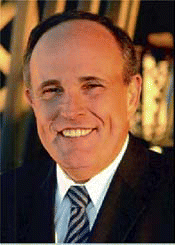Senator Chris Dodd would require employers to provide insurance or pay into a Health Care General Fund. Individuals not covered by employers would be required to purchase insurance from the fund. He would use health Internet technology to help cover costs.
Explore This Issue
December 2007Former Senator Mike Gravel suggests that the government issue annual health vouchers to cover all Americans based on their projected needs. His plan would prohibit exclusion based on health, wealth, or any other reason.
Representative Denis Kucinich advocates a single-payer system that is publicly financed and privately delivered, as embodied in the Conyers-Kucinich bill, HR 676. He would increase taxes on the top 5% of income earners, institute a modest payroll tax and small tax on stock and bond transactions, and reduce system inefficiencies.
Governor Bill Richardson says all Americans would be required to obtain coverage. He would work for the passage of a Medical Borrower’s Fairness Act to provide immediate relief to families, increase health system efficiency, and provide tax credits based on income.
Let the Free Market Reign?
Meanwhile, Republican front-runners Rudy Giuliani, John McCain, Mitt Romney, and Fred Thompson prefer to reduce federal programs. Republicans are encouraging competition, calling for portable insurance, and generally opposing mandates for coverage. The Commonwealth Fund points out the similarities among these candidates, noting that they wouldn’t require people to purchase insurance or employers to pay for it; rather, the Republicans would rely on tax incentives to induce consumers to purchase individual health plans.
 Rudy Giuliani said, Americans should have the option to buy health insurance similar to their auto insurance-covering major costs while leaving decision about minor expenses to the consumer-while those happy with their current coverage can keep it.
Rudy Giuliani said, Americans should have the option to buy health insurance similar to their auto insurance-covering major costs while leaving decision about minor expenses to the consumer-while those happy with their current coverage can keep it.Former New York Mayor Giuliani believes in individually purchased private insurance policies and thinks that health savings accounts are a good idea. In a Boston Globe editorial, he said, If millions of people go into the marketplace looking for less expensive health insurance, it will drive the insurance companies to create less expensive products that meet individual needs instead of government mandates. Americans should have the option to buy health insurance similar to their auto insurance-covering major costs while leaving decision about minor expenses to the consumer-while those happy with their current coverage can keep it.
His health care plan includes a tax deduction for citizens to buy their own health insurance. He has criticized the current tax system, noting that it penalizes millions, including the rising ranks of the self-employed and 40 percent of employees at small firms who pay for insurance on their own and receive no tax benefit.
Leave a Reply